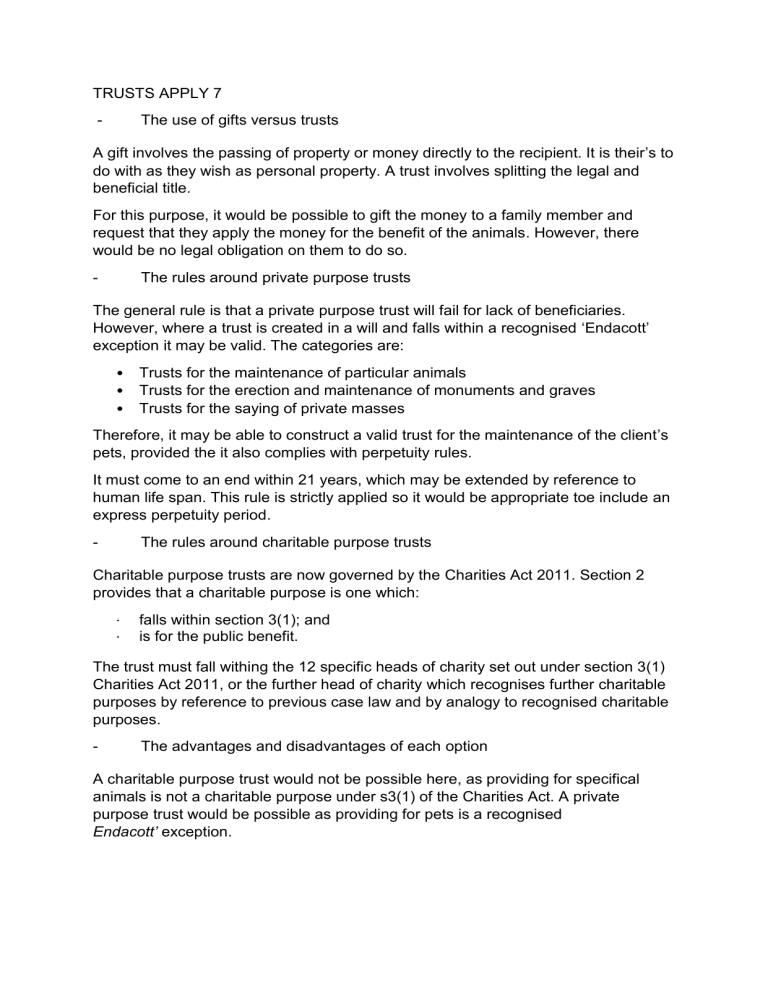
TRUSTS APPLY 7 - The use of gifts versus trusts A gift involves the passing of property or money directly to the recipient. It is their’s to do with as they wish as personal property. A trust involves splitting the legal and beneficial title. For this purpose, it would be possible to gift the money to a family member and request that they apply the money for the benefit of the animals. However, there would be no legal obligation on them to do so. - The rules around private purpose trusts The general rule is that a private purpose trust will fail for lack of beneficiaries. However, where a trust is created in a will and falls within a recognised ‘Endacott’ exception it may be valid. The categories are: • • • Trusts for the maintenance of particular animals Trusts for the erection and maintenance of monuments and graves Trusts for the saying of private masses Therefore, it may be able to construct a valid trust for the maintenance of the client’s pets, provided the it also complies with perpetuity rules. It must come to an end within 21 years, which may be extended by reference to human life span. This rule is strictly applied so it would be appropriate toe include an express perpetuity period. - The rules around charitable purpose trusts Charitable purpose trusts are now governed by the Charities Act 2011. Section 2 provides that a charitable purpose is one which: · · falls within section 3(1); and is for the public benefit. The trust must fall withing the 12 specific heads of charity set out under section 3(1) Charities Act 2011, or the further head of charity which recognises further charitable purposes by reference to previous case law and by analogy to recognised charitable purposes. - The advantages and disadvantages of each option A charitable purpose trust would not be possible here, as providing for specifical animals is not a charitable purpose under s3(1) of the Charities Act. A private purpose trust would be possible as providing for pets is a recognised Endacott’ exception.



